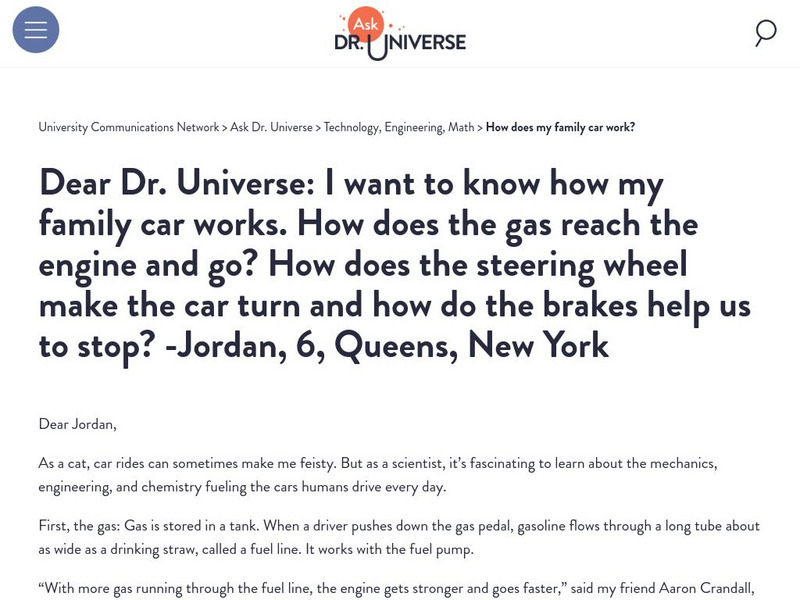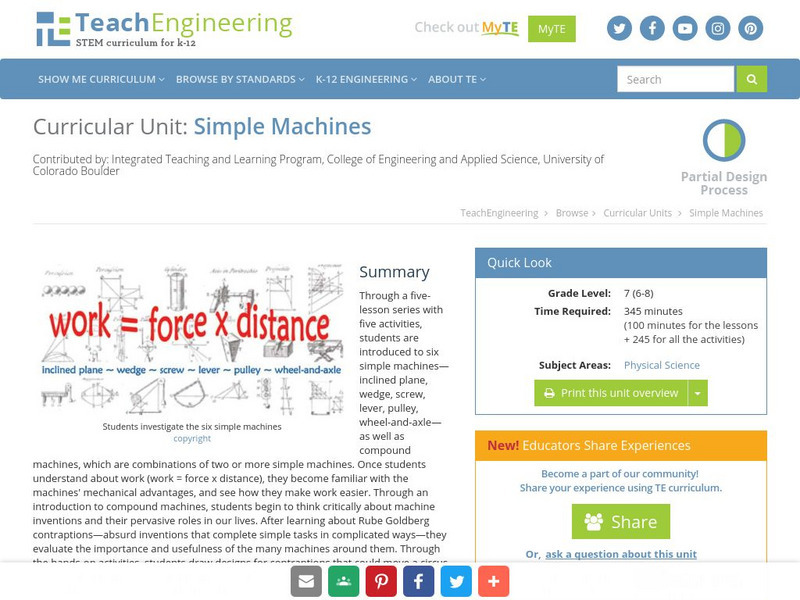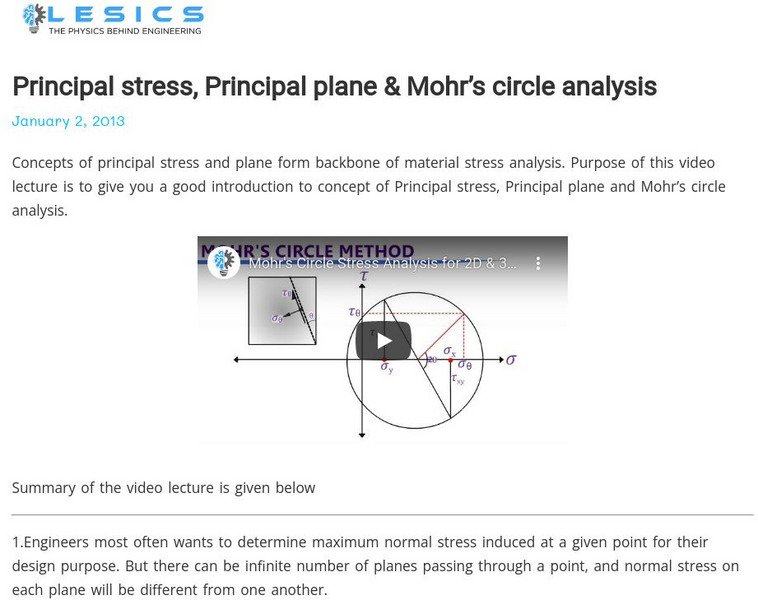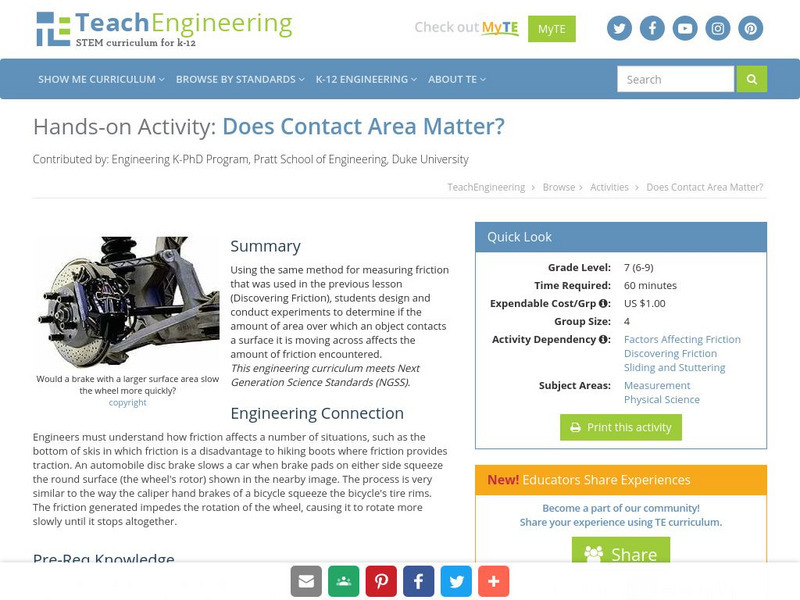Hi, what do you want to do?
Washington State University
Washington State University: Ask Dr. Universe: How Do Cars Work?
Website from Washington State University answers questions kids have about science, mechanics and engineering in an easy to understand format. In this letter, Dr. Universe answers questions about how the family car works.
TeachEngineering
Teach Engineering: Rotary Encoders & Human Computer Interaction
Students learn about rotary encoders and discover how they operate through hands-on experimentation. Rotary encoders are applied in tools to determine angle measurements and for translations of angular motion. One common rotary encoder...
TeachEngineering
Teach Engineering: Simple Machines
Through a five-lesson series with five hands-on activities, students are introduced to six simple machines - inclined plane, wedge, screw, lever, pulley, wheel-and-axle - as well as compound machines, which are combinations of two or...
TeachEngineering
Teach Engineering: Energy of Motion
By taking a look at the energy of motion all around us, students learn about the types of energy and their characteristics. They first learn about the two simplest forms of mechanical energy: kinetic and potential energy, as illustrated...
University of California
Transportation Futuristics
It's fun to take a look at what we were supposed to be traveling in by now: flying cars, amphibious recreational vehicles, or a flying saucer bus! Take a look at designs that were before their time or never should have a time.
TeachEngineering
Teach Engineering: Fascinating Friction!
In this activity, students use wood, wax paper and oil to investigate the importance of lubrication between materials and to understand the concept of friction. Using wax paper and oil placed between pieces of wood, the function of...
Learn Engineering
Learn Engineering: Understanding Degrees of Freedom
Explores how to predict degrees of freedom of a mechanism. Understand that in mechanics degrees of freedom is one of the most important concepts. Video length: 4 min. 41 sec.
Learn Engineering
Learn Engineering: Velocity Analysis: Mechanics
Learn how a velocity analysis is necessary to make sure a mechanism is properly designed. This video will discuss how a velocity analysis is completed. Site also includes an article which discusses concepts found in video. [5:07]
Learn Engineering
Learn Engineering: Spur Gear Design
Understand the design criteria that should be met by any gear design to meet the American Gear Manufacturers Association standards. The accompanying video discusses how the design inputs (power transmitted, space constraints, and...
Learn Engineering
Learn Engineering: Principal Stress, Principal Plane & Mohr's Circle Analysis
Article and video discussing the most convenient way to do a stress analysis called the Mohr's circle. Also, learn the importance of determining maximum normal stress. [9:15]
Learn Engineering
Learn Engineering: Theory of Vibration
Did you know that some bridges have failed due to the effect of vibration? This article and video explore vibration and its importance in the design of civil structures and mechanical equipment. The article discusses all concepts covered...
Science Struck
Science Struck: How to Rebuild a Hydraulic Cylinder
Describes the basic structure of a hydraulic system and what is involved in rebuilding a hydraulic cylinder. It presents three different problem scenarios and strategies for repairing the cylinder.
TeachEngineering
Teach Engineering: Does Contact Area Matter?
Using the same method for measuring friction that was used in the previous lesson (Discovering Friction), students design and conduct an experiment to determine if the amount of area over which an object contacts a surface it is moving...
Cosmo Learning
Cosmo Learning: Dynamics of Machines
A collection of video lectures from a course on the dynamics of machines. Webpage includes forty-four from a professor at the National Programme on Technology Enhanced Learning. Lectures vary in length and cover topics like degrees of...
Cosmo Learning
Cosmo Learning: Engineering Mechanics
A collection of video lectures from a course introducing students to engineering mechanics. Webpage includes forty lectures from a professor at the National Programme on Technology Enhanced Learning. Lectures vary in length and cover...
Cosmo Learning
Cosmo Learning: Mechanical Vibrations
A collection of video lectures from a course on mechanical vibrations. Webpage includes forty lectures from a professor at the National Programme on Technology Enhanced Learning. Lectures vary in length and cover topics like harmonic...
















